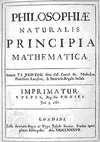Issac Newton |
I feel that I must make a statement here. Scientists are the only rational people on the entire planet. Never in the history of the world has a debate between two scientists started any kind of war. For example, scientists especially in the Renaissance were heavily divided in support of the Copernican theory of universal configuration. Many of the scientists of the day still believed the ages-old principles of Ptolmey, and the Roman belief that the Universe was a fixed and unchanging object, perfect and flawless in its creation. Many heated debates on the matter arose, but never in the course of the debate did any scientist kill any other scientist for his belief or disbelief of the Copernican theory. Scientists also have held heated debates over other scientist's theories and hypotheses. At the turn of the 20th century, many scientists debated the theory of relativity, postulated by Einstein in 1905.
|
Government should take a lesson from the scientific community. The scientific community is able to debate matters wholeheartedly, but without violence. Scientists may hold grudges, they may debate matters, but they never decide to kill other scientist because of their beliefs. Imagine the stupidity of a meeting of scientists to debate relativity, and the supporters decide to bomb the opposers. The ridiculousness of the situation is outstanding.
Well, this brings me back to Newton. Newton was so scared out of his mind by the scientific debate that arose with his first publication on universal gravitation that he worried about publishing his principia mathematica, one of the most important works in the history of science.
Newton was an early genius. By the age of 25, he had made three significant discoveries that could have given him a name with the greatest scientific minds of the era. His first significant discovery was the principles of differential calculus, which he called "fluctuations." His discoveries, along with those of Gottfriend Wilhelm Leibniz, would form an entirely new branch of mathematics. Newton's second great discovery was of the composition of light, and the third, universal gravitation. But fear of controversy led Newton to hold back in his publication of these theories.
Strangely enough, Newton was very much afraid of criticism. He disliked the debate and controversy that came along with the publication of new and shocking ideas like the ones that he proposed. Christiaan Hyugens and Robert Hooke were the men most strongly opposed to his theories. Throughout Newton's career, both men were constantly opposing any theory that came with Newton's name affixed. In fact, the debate was so strong that after Newton published his paper on the origin of light, and received a very strong opposition, he decided never to publish again. This was before the publication of Principia. Principia, in fact, seemed to have been published by chance. Without the persuasion of Edmund Halley, the greatest work in the history science may have never reached the printer's press.
Principia Mathematica was a taxing effort, to say the least. Newton was so engrossed with writing the work, there were times he would go without food or water and stay up for days on end, just to finish the work. He worked for eighteen straight months, without adequate food and sleep. When he was two-thirds done with the work, written in antiquated Latin was all but unreadable to most scholars. But again the battle with Robert Hooke almost stopped Newton from including the third and most important part of his work, the application of the laws of Gravitation to the motions of heavenly bodies. The writing of Principia left Newton physically and mentally exhausted.
A brief overview of Principia lays the work into three major sections: Laws of motion, his theory of the motions of planets and the sun, and the third and most important part was the application of the laws of gravitation to heavenly bodies.
The first third explains the laws of motion of bodies in free space, the laws of motion of bodies in a resilient medium, and the application of these laws to the bodies in the heavens and Earth. The second proceeds of smash Descartes' theory of "vortices" that influence the bodies of the universe, replacing it with a system based on the laws of gravitation. The third section by far is the most important, dealing with the motions of the planets and satellites, methodology for measuring the masses of the sun and planets, the density of the earth, the equinoxes and seasons of the earth, the theory of the tides the orbits of comets the motion of the moon, and many other applications of his theory.
Newton opens up the works with a preface explaining what he calls "fluxions," or differential calculus. He applies this new mathematics in most of the work. Overall, the work is based on the principle that every particle of matter is attracted to every other particle of matter. Newton also incorporates the mathematics of bodies colliding with each other.
Principia can only be considered a work of true brilliance. Newton was able to define many new elements of science and mathematics with one swift blow. As Sir James Jeans wrote: "… it is impossible to estimate how much science owes to Newton's clear and penetrating mind having set on the right road, and this so firmly and convincingly that none who understood his methods could doubt their rightness." In the last hundred years, many different scientists, mainly Albert Einstein, have proven inadequacies in Newton's theories. But even to this day any scientist looking at motion at normal speeds on Earth uses the same principles of physics and mathematics that Newton postulated in 1687, more than three hundred years ago.
Source: Downs, Robert B. Landmarks of Science. Libraries Unlimited, 1982. p 142-149.Addi Faerber 1998.

